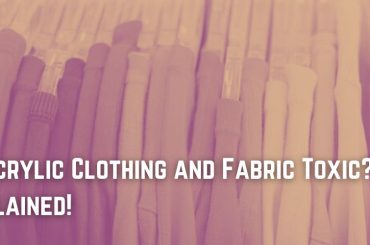Nylon vs polyester is a typical topic of discussion among those who are looking for good quality jackets for winter.
These two materials have a number of physical features and characteristics, which is an intriguing fact.
Both are known to be substantially lighter and more durable than average. The wrinkle-resistant and easy-care properties of both fabrics are a result of their synthetic composition and manufacture.
As they are frequently used in outdoor equipment and clothing, they are resistant to shrinking and stretching, as well as mold, mildew, and stains!
Polyester is substantially more resistant to heat than nylon, despite the fact that both are flame-resistant.
While Nylon may be slightly softer than polyester, it has been noticed that it is far stronger.
Polyester, on the other hand, is favored due to the fact that it is considerably simpler to dye (and, thus, would offer far more color options for the aforementioned outdoor gear and apparel), abrasion-resistant, and, most crucially, quicker drying.
Both materials have advantages and disadvantages, making it difficult to choose between them.
We have outlined the advantages and disadvantages of each material so that you can make the perfect decision for your winter gear.
Table Of Contents
What Wears Better Polyester Or Nylon?
Both of these materials are synthetic. They are composed of diverse substances, although they have many similarities.
Both nylon and polyester are strong and durable materials. However, when compared directly, nylon is stronger and stretchier than polyester, thus nylon-made garments should last longer.
They are also wrinkle-resistant and colorfast. Nonetheless, there are significant distinctions between these two textiles.

When it comes to abrasion resistance, nylon falls somewhat short. This fabric is more susceptible to pilling than polyester. Even if this does not weaken the garment, it will age more quickly.
Nylon is often softer than polyester and has a more reflective appearance.
Polyester’s finer thread allows for a larger thread count to be woven without increasing the fabric’s thickness, partially compensating for its lower strength-to-weight ratio.
Polyester is additionally more sensitive to color dyes. Polyester retains color and fades less than nylon when exposed to UV radiation from the sun.
If you want to choose a jacket with vivid colors or patterns, polyester is your best option.
Polyester is more resistant to grazing than nylon, thus it is an excellent choice for garments that will be worn frequently.
Since nylon is more flexible than polyester, it is frequently used in athletic apparel.
Additionally, nylon is less likely to pill over time. Polyester and nylon are both acceptable options for clothes that must be durable and simple to maintain.
However, the optimal fabric for a garment relies on its intended purpose, which in the case of the jacket is nylon.
Is Polyester Or Nylon Better For Cold Weather?
Polyester jackets are often cooler than nylon jackets, and while both fibers are UV resistant, polyester has a stronger resistance and can survive long exposure to the sun without degrading.
Nylon is a synthetic material that is not only lightweight and breathable but also moisture-wicking and quick-drying.
The wrinkle-resistant and easy-care properties of both fabrics are a result of their synthetic composition and manufacture.
Because nylon is more robust than polyester, it is frequently blended with other textiles, particularly polyester, to increase its durability.

The durability of nylon minimizes the amount of abrasion, which causes pilling and fabric damage.
Both materials are well suited for use as an inner layer, either the base or mid-layer. However, they can be utilized as a part of an insulating layer.
The outside layer/shell of an insulated puffy jacket is often made of polyester and nylon; the jacket’s interior layers are made of faux down, an insulating material, which provides warmth.
However, both fabrics are winter-appropriate. Polyester is an excellent choice for clothing that will keep you dry and warm.
Nylon is the material of choice if you’re seeking anything that will insulate against heat loss. Ultimately, the optimal fabric for your jacket will rely on your specific needs.
Which One Is Warmer Nylon Or Polyester?
Nylon or polyester, several considerations must be made while selecting the fabric that will provide the best warmth.
Initially, you must consider the fabric’s weight. A heavier fabric will provide greater insulation, while a thinner fabric is ideal for layering.
The breathability of the cloth is also a significant feature. You don’t want a material that will trap your body heat, but you also don’t want one that would let all of your warmth to escape.
Nylon and polyester are both lightweight, fast-drying, and smooth fabrics. Nylon is typically warmer than polyester and can be sweatier or stick to the body more.
Nylon, the warmer fabric, adheres to the body more than polyester. In any case, nylon stays close to the body, and the tighter it is, the less breathable it is.
Polyester, on the other hand, has a limited ability to breathe and is not as warm as nylon. As a result, this fabric absorbs body heat and sweat and prevents air circulation.
Polyester jackets are often cooler than nylon jackets, and while both fibers are UV resistant, polyester has a stronger resistance and can survive longer exposure to the sun without degrading.
Consider the fabric’s water resistance as the final factor. In most cases, nylon is preferable over polyester for winter conditions.
Nylon is more comfy, lightweight, and elastic. It retains your body heat, but not to the point where you feel smothered.
However, it has a tendency to feel chilly if it becomes wet, whether through sweating or rain.
Therefore, if you live in a location where it rains regularly or if you have overactive sweat glands, a polyester jacket is the better alternative for you.

